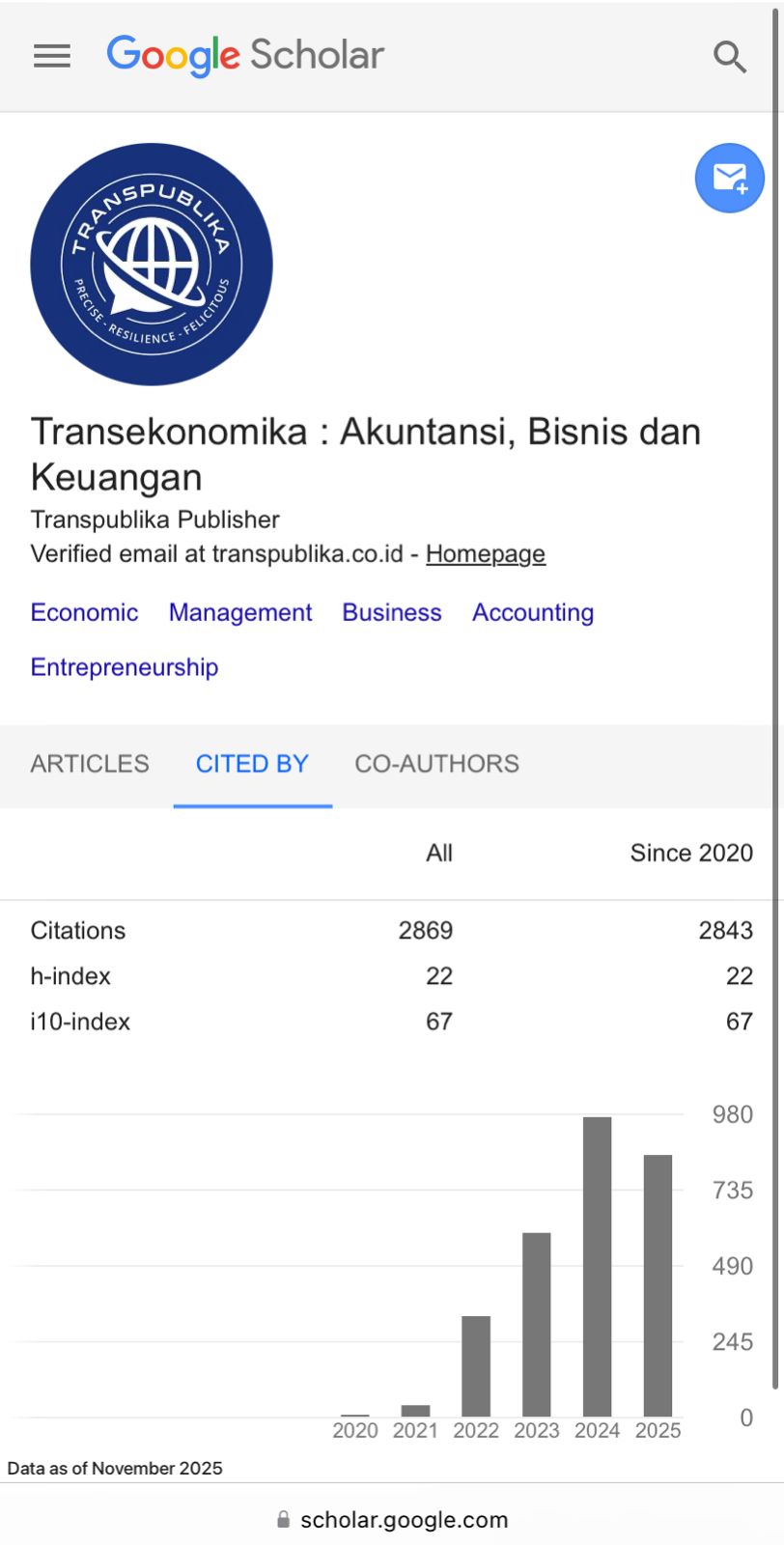EFFORTS TO INCREASE CONSUMER TRUST THROUGH GREEN MARKETING ON WHITE OYSTER MUSHROOM CHIPS MSMEs IN KEDIRI
DOI:
https://doi.org/10.55047/transekonomika.v4i3.630Keywords:
Consumer Trust, Green Marketing, White Oyster Mushroom Chips, MSMEsAbstract
The study focuses on assessing the impact of enhancing trust through green marketing at White Oyster Mushroom chips MSMEs in Kediri - East Java. The White Oyster Mushroom chips MSMEs are dedicated to implementing green marketing strategies, such as eco-friendly promotional services, to build consumer trust. By prioritizing environmental concerns in their marketing mix, these MSMEs aim to boost trust among consumers in Kediri. The research methodology involves phenomenological qualitative research with 5 informants identified using the snowball technique. Over the past 4 months, these MSMEs have been utilizing sustainable innovation to support their green marketing efforts, emphasizing products, locations, pricing, and promotions that align with environmental values. The focus is on repurposing waste from mushroom chips production to white oyster mushroom chips, reflecting a growing societal interest in environmental sustainability across various industries. Surveys on green marketing strategies have been conducted to minimize the environmental impact of production processes. The study also highlights the role of consumer feedback in promoting information to the community and fostering ongoing consumer engagement. Through a qualitative approach with a narrative phenomenological analysis model, the study reveals that consumers are motivated by environmental concerns, and green marketing initiatives contribute positively to consumer perceptions and trust in White Oyster Mushroom chips MSMEs in Kediri.
Downloads
References
Dangelico, R. M., & Vocalelli, D. (2017). “Green Marketing”: An analysis of definitions, strategy steps, and tools through a systematic review of the literature. Journal of Cleaner Production, 165, 1263–1279.
Dreher, J., & Santos, H. (2017). Sociology and phenomenology. Civitas-Revista de Ciências Sociais.
Hansemark, O. C., & Albinsson, M. (2004). Customer satisfaction and retention: the experiences of individual employees. Managing Service Quality: An International Journal, 14(1), 40–57.
Henion, K. E., & Kinnear, T. C. (1976). Ecological marketing, American Marketing Association’s (AMA’s) first national workshop on ecological marketing. AMA: Chicago, IL, p1.
Kotler, P., & Keller, K. L. (2009). Manajemen pemasaran. edisi.
Labaso, S. (2018). Penerapan marketing mix sebagai strategi pemasaran jasa pendidikan di MAN 1 Yogyakarta. MANAGERIA: Jurnal Manajemen Pendidikan Islam, 3(2), 289–311.
Setiawan, D., & Utomo, D. M. B. (2022). The Phenomenon of Murals and Graffiti as Media for Social Criticism in the Perspective of Social Interaction Alfred Schutz. Indonesian Journal of Cultural and Community Development, 13, 10–21070.
snilam Syafitri, E. R. (2020). Studi Kepustakaan Teori Konseling “Dialectical Behavior Therapy.”
Sunyoto, D. (2014). Dasar-dasar Manajemen Pemasaran, konsep, strategi, dan kasus.
Tarigan, A. N., & Raja, P. L. (2022). Influence of Celebrity Endorser and Brand Image on Purchase Decision of Erigo Products:(Study on Erigo consumers in Medan City). Journal Of Management, Accounting, General Finance And International Economic Issues (MARGINAL), 2(1), 282–298.
Thoibah, W., Arif, M., & Harahap, R. D. (2022). Implementasi Green Marketing Pada UMKM Upaya Memasuki Pasar Internasional (Studi Kasus pada Creabrush Indonesia). Jurnal Ekonomika Dan Bisnis, 2(3), 798–805.
Wardi, & Nyoman, I. (2011). Pengelolaan Sampah Berbasis Sosial Budaya: Upaya Mengatasi Masalah Lingkungan Di Bali. Bumi Lestari, 11(1).
Widyawati, N. (2008). Pengaruh kepercayaan dan komitmen serta bauran pemasaran jasa terhadap loyalitas konsumen di hotel zakiah medan. EKUITAS (Jurnal Ekonomi Dan Keuangan), 12(1), 74–96.








.png)







.png)


.png)

.png)












